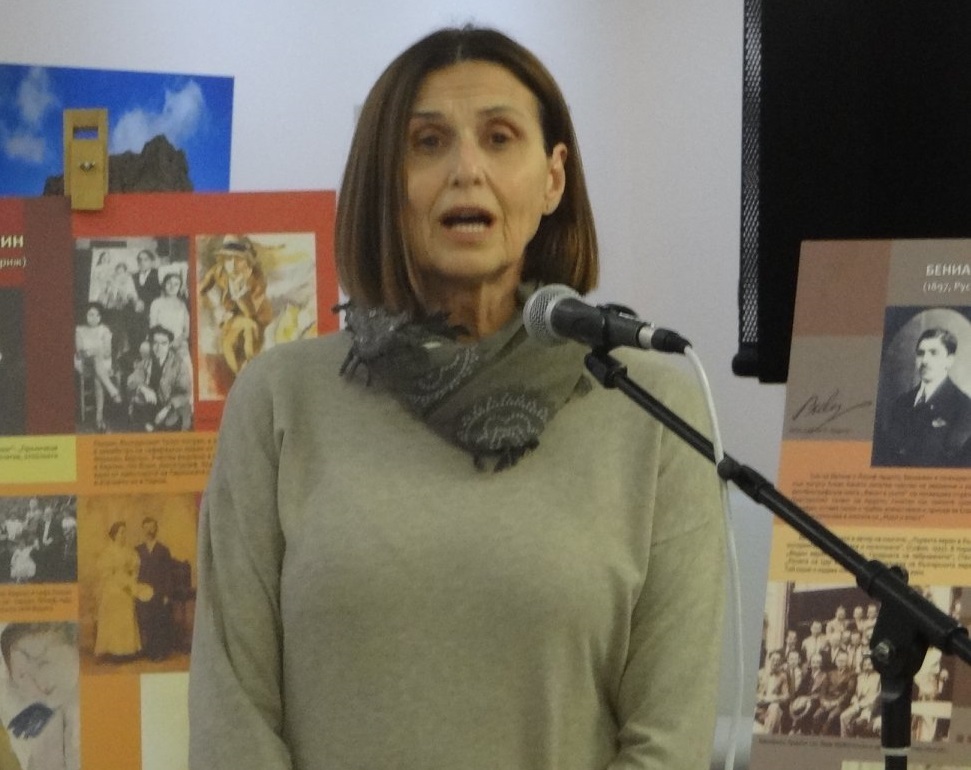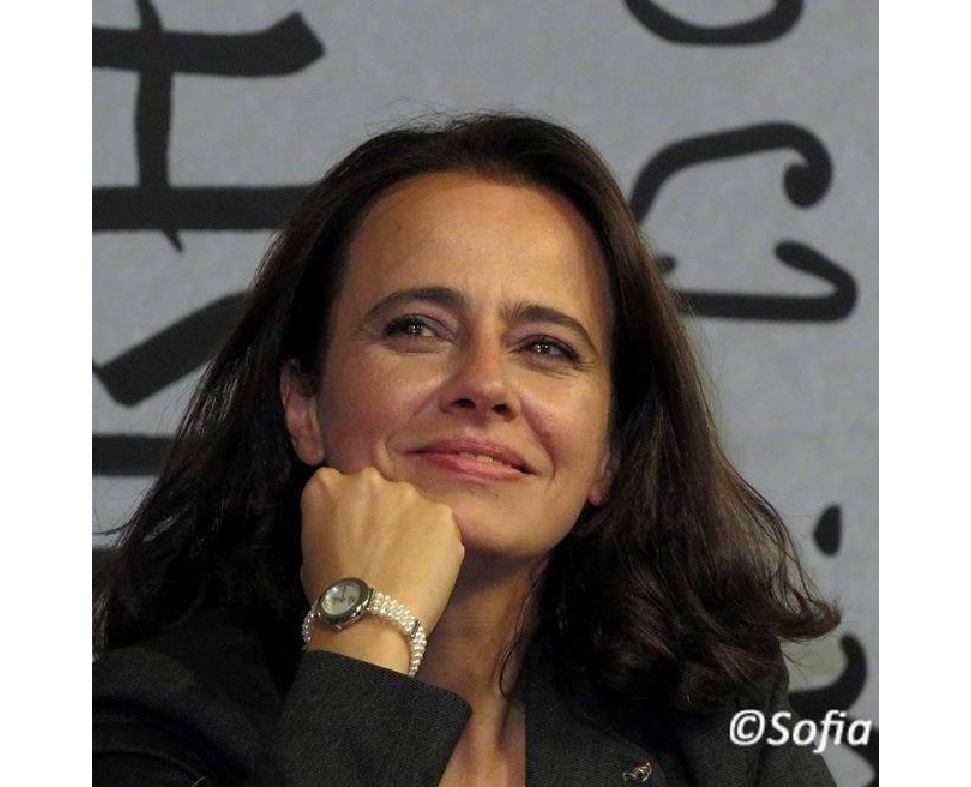
/Detelina Kamenova, media relations, International Elias Canetti Society, journalist/

/Silvia Tomova, author of THE LONG SUMMER OF ETERNITY/
Silvia Tomova was a guest on the second day of the Literary Festival. We read and talked about The Long Summer of Eternity. But not only, as you will find out from the interview she gave especially for the festival.
- What do you think gives a literary festival the strength to survive for 15 consecutive years?
When the hosts of a literary festival invite artists of character not only from Bulgaria but from all over Europe, writers and poets who assert their independent view of the world unattached from the distribution of power in this time, it is a sure sign that the festival will not only survive but leave its mark not only on the cultural history of its city but also on the cultural map of Europe. So, in my opinion, the strength of a festival lies in the people who have heart and spare no effort to maintain its high level in terms of the spiritual values upheld for more than a decade, but also in the guests who in a way become ambassadors of the event in their homeland, through the creativity inspired by Ruse and the encounters they have had right here – in the Bulgarian Danube city rich in history and colour.
- What do you know in particular about the festival organized by the International Elias Canetti Society and what is its place among other literary festivals in Europe and Bulgaria?
I know that the festival organized by the IECS is the oldest international literary festival in Bulgaria, so every year I look forward to seeing who the guests from abroad will be and what books they will talk about and present in your city. My impression is that, unlike other literary festivals, the Ruse festival has always maintained an extremely high intellectual, aesthetic and moral level. These are all aspects that are largely missing in our lives. That’s why over the years I’ve always looked for reports on visiting poets and writers, I’ve wanted to read interviews with them, to get a sense of how they think and what their attitude is on hot topics in the world, Europe, and how they perceive Bulgaria, whether they like it, what has impressed them, what memories they will take back to their homeland. The other, preferably unconventional point of view has always been very important to me, so I am looking forward to meeting the guests, Bulgarian and foreign, this year.
- Why does the writer, the poet, the artist even need to meet live with an audience and be presented at festivals?
Because the writer, poet and artist is generally a vain creature, they would not write poetry, publish books or play different roles on stage if they did not want to show himself, if they did not seek approval and their reflection in the eyes of others… And I see nothing wrong with that. If it were not for vanity, art would not exist…, it is the offspring of the call of people to communicate, to conquer the other, to stand out, but also to create an alternative to this world, other spaces, other examples to follow, other peaks to conquer and mysteries to solve… And artists do it in an artistic way, with make-up, with mask, with improvisation, with artifice, with cunning, but also with revelation about human nature, with rebellion, with exposure and sometimes with a lesson… Literature is another path to self-knowledge, self-transcendence and, I hope, the transformation of the world into a better place to inhabit. And festivals, on the one hand, give writers a chance to check through the audience how far they have come, to meet others who are also searching, like them, some for their style, others for another image to appeal to themselves and others… and others for the truth….
- What do you expect from the live meetings with the audience in Ruse?
A few years ago, the focus of the festival was the political novel, and in a way the book I will be presenting has exactly that focus. It’s about taking sides when the world is being reshaped again, when the camps we’re used to dividing ourselves into are being overturned and good and evil… no longer look exactly as we imagined them yesterday. So from my encounters with the public, but also with other artists, I expect to find answers to the questions that excite me in this direction. When does a writer step out of their comfort zone, excuse the cliché, but this time not to show off, but to point out the lie, knowing that being a debunker could cost them everything?
- What should the audience expect from meeting you?
I have always been frank, so the audience can expect an open conversation with no forbidden topics, no coquetry.
- Where is more space for artistic interpretation – in real life or on social media?
Well, of course in real life. What happens on social media quite often looks like theatre, and bad theatre at that. People there often say what is expected of them, not what they actually think. They want to demonstrate their belonging to what they perceive to be more prestigious groups, so lies and hypocrisy abound… But reality is the arena that produces the real heroes, the real winners and the real losers. Everything else is imitation.
- How do you see geographical borders today, when the world is experiencing tremors of a different, supranational nature?
As a writer who has several historical novels, I know that humanity has survived because it is capable of change. However, change in the world has always come at a price, and that price has inevitably manifested itself in economic, political and social upheaval. Today, the world is facing another change and we cannot escape it. Those who survive will be those who base themselves on values derived from real life and not on someone else’s doctrine which masquerades greedy and ruthless corporate interest as concern for people. In that sense, I think the coming change will be global and borders are the least important factor that will matter. We are talking about a new reshaping that can only be compared in scale to the end of the Second World War… The world is no longer unipolar and we have to get used to that, nor is it bipolar. It is now the turn of diversity, not the orchestrated, but the actual.

